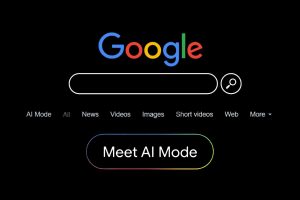Both the terminologies, AI and Machine Learning are not new to our ears. While AI refers to the output of devices, applications, and machines that resembles human intelligence to a certain extent, Machine Learning is all about how a machine learns from user behaviors and reactions overtime to make decision making better and to enhance performance. Instead of acting as per the present programming rules Machine Learning helps to reach decisions by learning from experiences and instances.
With so unique kinds of potential, both AI and Machine Learning are all set to transform the digital interactions ruling our lives. They are gaining massive popularity across the enterprise niches. Mobile App development companies catering to business startups and making user-centric mobile campaigns found AI and Machine Learning as their technology allies to drive personalization. With a similar intelligence compared to the human brain, they are expected to humanize technology more than ever before.
As mobile apps now penetrated all spheres of life, mobile app developers want to know to what extent AI and Machine Learning can humanize mobile apps. First of all, let us understand the importance of these two technologies for the future of mobility.
1. The Never-before Opportunity of Reaching New Users
Thanks to AI and machine learning, enterprise apps can have more comprehensive access to user data that can boost revenue. From user behavior, preferences to user constraints, machines now can access multiple facets of user data and customer insights. Such deeper access to user data will help to target and reaching users better than ever before.
Both AI and machine learning technologies in the context of mobile apps are mostly about being updated with the latest user insights concerning usability, engagement and overall experience. By analyzing user contexts, needs, user feedback and preferences, the developers and marketers of mobile apps can easily widen their access and trajectory to address new users.
2. Meeting the Evolving User Experience Standard
AI and Machine Learning also help to gain insights about the evolving user experience. It gives direct insights into how user experience can become more personalized and sophisticated by addressing the pitfalls and shortcomings of a user interface (UI) and user experience (UX) standard.
While UI and UX of mobile apps are evolving at a rapid pace, meeting the trends and latest standards remains a crucial criterion. The user experience can be better when artificial intelligence and machine learning algorithms help app administrators learning about users.
3. Offering a Customer-Centric User Journey
The AI and Machine Learning by providing insights about typical user behaviors, feedbacks and interactions can help businesses understand the preferences of customers and accordingly can help them adapt to a more customer-centric and personalized journey through the app.
In creating a customer-centric user journey, more in-depth insights about users remains a key factor. Machine learning allowing apps to learn about users over a period of time whether in their on-screen behaviour, leanings and preferences or in terms of dislikes and pain points, can really draw most useful insights. Such user insights can play a huge role in making value additions or addressing issues in order to fine-tune the user experience.
4. AI-Powered Chatbots
One of the most effective ways artificial intelligence is humanizing the mobile apps is through chatbots. AI-powered chatbots are actively being used for real-time customer service, effective client communication and for steady business conversion. Let us take the example of eCommerce and mobile commerce stores. AI-powered chatbots typically in an eCommerce environment can help to do the following things.
- Chatbots can help to complete the purchases on behalf of buyers and can reduce the time and difficulty faced by the customers.
- AI-based chatbots can also deliver more customer-centric and personalized product recommendations.
- Chatbots in a mobile store can continuously remain available as the 24×7 customer support to help customers navigating through the store, finding products, addressing all sorts of issues and processing requests.
Earlier chatbots were built mainly based on algorithms with pre-determined logic. Now, thanks to artificial intelligence algorithms have become smarter, and they can adapt to human understanding and perceptions to a great extent. So, chatbots have now the better ability to interpret human actions and inputs. This makes AI chatbots an invaluable ally for many business applications.
5. Humanizing Home Automation
Home automation that depends on connected gadgets demands more precision-driven understanding and interactive ability. All the smart home gadgets starting from the smart lighting system to the coffee maker to the Google Home speakers, a vast majority of them as of now relies mostly on mobile apps for interactions and controls. The next level of innovation became apparent when Amazon Echo and the likes offered us AI-powered voice interaction opening new and most relevant ways of interacting with the speaker and digital content.
Now, by taking this approach, further developers can humanize the mobile apps for connected devices and allow us to get more precise outputs with least and effortless input most of the time. If humanizing home automation started with smart speaker systems run by AI-powered smart assistants, it would soon be a reality with many other apps with the use of AI and Machine Learning.
6. Grasping the Trends
Most businesses try to stay ahead of competition simply by keeping updated with the trends and adapting to them. In fact, by knowing the trends and meeting the trending demands a business can always boost sales and business conversion. An intelligent business app equipped with artificial intelligence and Machine Learning can always keep a tap on the changing user preferences, user behaviors and the multifarious ways user demands and taste is evolving. By having a solid grasp on all the trends and trending demands a business app can actually help a company keep updated and stay on top of the competition.
Conclusion
Both AI and Machine Learning are here to stay as the most promising technologies to shape the future of mobile app development. We only explained a handful of the ways these two technologies can really make an impact on mobile apps and digital interfaces. There are obviously too many other examples and ways that their role can be assessed.












